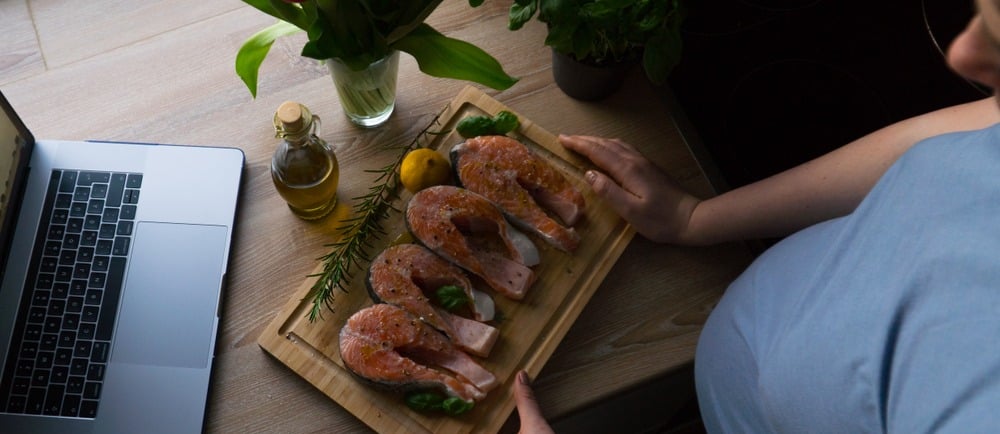Eating Fish During Pregnancy: Safe and Harmful Types for Pregnant Women
Learn about the benefits and risks of eating fish during pregnancy, the beneficial and harmful types, the appropriate quantities for pregnant women, and safe cooking tips.
PREGNANCY
Nifas
2/17/20252 min read


Choosing the right foods can sometimes be confusing for pregnant women, as they might not know what to eat or avoid. Seafood, like fish, is one of the best foods a pregnant woman can consume, but it is important to avoid some types.
In this article, we will provide you with the benefits of eating fish during pregnancy, safe types you can eat, and types to avoid, along with tips on how to cook them properly to ensure your safety and your baby’s health.
Benefits of Eating Fish During Pregnancy: Boosting Health for Both Mother and Baby
Following a healthy diet rich in vitamins and minerals is essential. Therefore, it's advised to eat fish during pregnancy for its numerous health benefits, such as:
● Helping to strengthen bones and reduce the risk of fractures.
● Lowering the risk of obesity or weight gain.
● Reducing the risk of colon cancer.
● Enhancing memory strength.
● Promoting heart health.
Fish provides essential nutrients that enhance your baby’s brain growth, such as:
● Omega-3 and Omega-6, which support the growth of brain cells.
● Iron and zinc, which boost the immune system.
● Choline, which supports spinal cord development.
Fish is also a source of other nutrients like protein, Vitamin B12, Vitamin D, and selenium.
Recommended Amount of Seafood During Pregnancy and Breastfeeding
Pregnant or breastfeeding women should consume between 8 to 12 ounces, equivalent to approximately 277 to 340 grams, of a variety of seafood per week. It is advised to have about 2 to 3 servings per week, with each serving about the size of the palm of your hand. It is best to choose fish with low mercury levels.
The following types of fish are beneficial and safe to consume during pregnancy due to their low mercury content:
● Salmon
● Crab
● Shrimp
● Sardines
Avoid consuming fish with high mercury levels, as they might contain contaminants like dioxins and polychlorinated biphenyls, which can harm the baby’s health.
What Types of High Mercury Fish Should Pregnant Women Avoid?
● King mackerel
● Shark
● Swordfish
● Tuna, with a recommendation to limit canned tuna to no more than four medium-sized cans weekly, with each can weighing about 140 grams after draining the liquids.
Avoid eating raw or smoked fish such as those found in sushi and Japanese dishes; they could contain bacteria, increasing the risk of an infection known as listeriosis. This can lead to miscarriage, stillbirth, or severe illness in your newborn. Therefore, it is crucial to cook fish thoroughly to kill any present bacteria.
Safe and Healthy Ways to Cook Fish for Pregnant Women
● Store fresh seafood immediately in a sealed container in the fridge after purchasing.
● Use separate cutting boards for meats, including fish, and fruits and vegetables.
● Cook seafood thoroughly until its internal temperature reaches 63 degrees Celsius. If you don't have a thermometer, it's done when the fish turns white and flakes easily with a fork.
Nifas Advice
During pregnancy, make sure to eat fish rich in Omega-3, such as salmon and sardines, as they contribute to heart health, strengthen memory, and support your baby’s brain development by providing essential nutrients like iron and zinc. Always avoid high mercury fish and ensure proper cooking for your and your baby’s safety.
Frequently Asked Questions (FAQs)
Contact Us


Tahlia Street, Abdul Latif Building, Opposite Karam Beirut Restaurant, First Floor, Office 101 Riyadh, Kingdom of Saudi Arabia
info@nifas.net
Our Address
Follow Us
